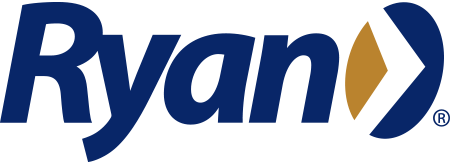


HMRC R&D Enquiries on the Rise: What You Need to Know
04/07/2024


Innovate UK Innovation Loans Future Economy: Round 16
07/08/2024In the Spring Budget 2024, it was announced that the furnished holiday lettings (FHL) tax regime would be abolished, but since then, taxpayers have been in the dark as to what that means for their businesses due to the lack of detail on how this change would be implemented.
On 29 July 2024, the government announced the transitional rules to provide the crucial details business owners need.
In this article, Dean Needham, Manager, Capital Allowances Tax Analysis, explores how the transitional rules will work and how they will affect taxpayers.
Overview of the Transition Rules
According to a recent policy paper, the repeal of the tax regime for FHLs will begin from April 2025, after which the following transitional rules will apply to capital allowances within FHL businesses:
“businesses with FHL properties will no longer be eligible for more beneficial capital allowances treatment but will instead be eligible for ‘replacement of domestic items relief’ in line with other property businesses — where an existing FHL business has an ongoing capital allowances pool of expenditure, they can continue to claim writing-down allowances on that pool — any new expenditure incurred on or after the operative date must be considered under the property business rules”.
In summary, this means if a current FHL business has not fully explored the capital allowances potential of their UK property assets, then without action, tax relief that could have been claimed following 1 April 2025 will be lost.
Additional guidance has been given if the FHL has losses carried forward. Following 1 April 2025, these losses will no longer be restricted to profits of the same FHL business; instead, they be available for set off against future years’ profits of a taxpayer’s wider UK or overseas property business as appropriate. This is a welcome inclusion that will ensure businesses are not adversely affected by the repeal.
There are also crucial changes to capital gains tax reliefs; where previously FHL properties qualified for reliefs such as Entrepreneurs' Relief and Business Asset Rollover Relief, they will now be subject to the same capital gains tax rules as other residential properties.
For the full details on the transitional rules introduced, please see the recent government policy paper.
Overview of the Repeal
The FHL tax regime has historically provided beneficial tax treatment for owners of qualifying furnished holiday properties. These benefits included advantageous capital allowances available compared to some other property income businesses and favourable treatment under capital gains tax rules. However, the government has decided to abolish this regime, effective from 1 April 2025, citing the need to simplify the tax system and reduce opportunities for tax avoidance.
"The FHL regime has provided considerable benefits to property owners, but it has also created disparities and complexities in the tax system. This abolition will contribute to a more equitable tax framework," the document states.
Ryan’s Reaction
Announcing the abolition of the FHL tax regime is a significant policy shift for the UK government, a move set to impact thousands of property owners and the broader tourism industry. As per the recent policy paper, April 2025 will mark the end of tax advantages long enjoyed by those letting furnished holiday properties in the UK and the European Economic Area (EEA).
The detail in the transition rules sets out a clear cutoff point of 1 April 2025 for FHL owners to either claim tax relief their business is entitled to or face losing their entitlement forever.
The FHL repeal transition rules around capital allowances and carried-forward losses are certainly a positive for existing FHL owners; however, the call to action is clear and time-sensitive. If you own a furnished holiday let, please get in touch with our team to ensure you have fully explored the capital allowances potential of your UK and EEA property assets and that tax relief your business is entitled to is not lost after 1 April 2025.
Conclusion
Typically, an FHL property purchased can contain as much as 20% qualifying fixed plant and machinery. Therefore, a FHL property purchased for £500,000 could contain £100,000 of qualifying plant that is eligible for tax relief. This equates to the following tax savings:
- Higher rate taxpayers - £40,000
- Basic rate taxpayers - £20,000
- Small profits companies - £19,000
- Main rate companies - £25,000
At Ryan, it is our mission to ensure your business is in the most tax-efficient position possible.
If you own a FHL and would like to discuss the implications of this policy change, please fill in the form below and one of our experts will be in touch.
Connect with an Expert
Secure your FHL Capital Allowances before it's too late, get in touch with our experts by completing the form below.

